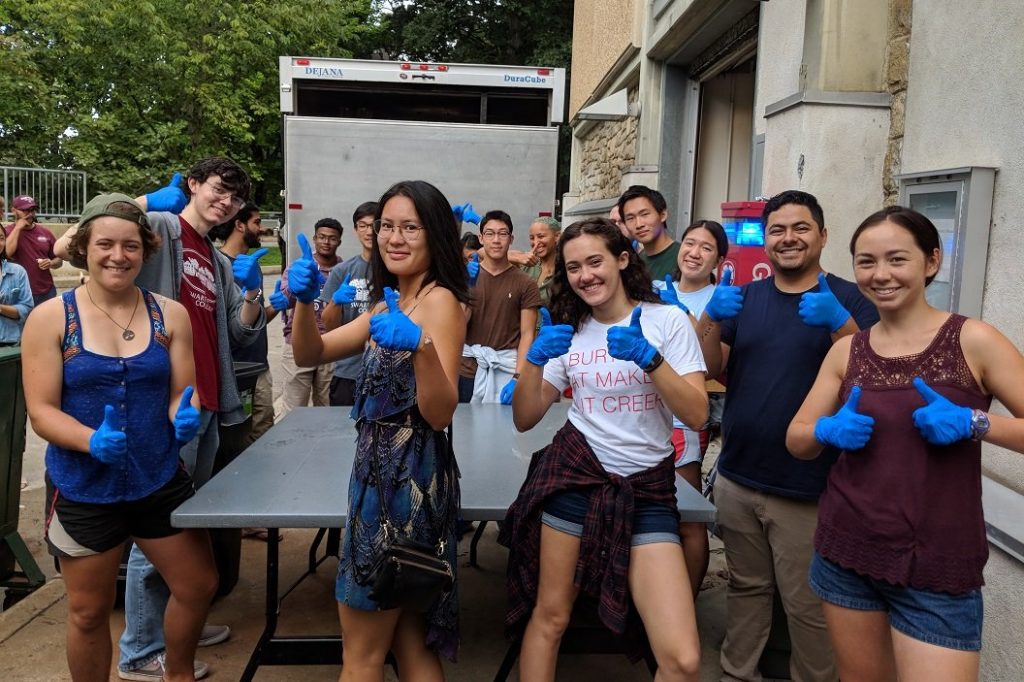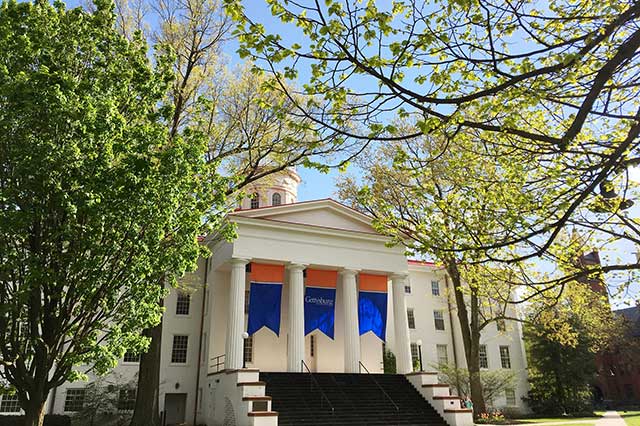
In order to enforce effective sustainable actions, many colleges hire employees who specialize in sustainability, and create a sustainability committee to oversee the university’s efforts. At Gettysburg College, however, an office of sustainability does not exist at the administrative level. The lack of a sustainability committee inhibits sustainable development on campus. Compared to individual students, an administrative board could institute sustainability-related programs that would continue indefinitely.
What can we learn from other colleges?
To construct a framework for Gettysburg College’s future sustainability board, I integrated ideas from four schools with admirable sustainability boards: Swarthmore College, Dickinson College, Colorado State University, and Thompson Rivers University. These advisory boards have realized successes in sustainability education and awareness on campus – click on each school to check out their impressive achievements. To see at how Gettysburg compares to other institutions, check out the Sustainability Tracking, Assessment & Rating System by the Association for the Advancement of Sustainability in Higher Education.


Specifically, how can we integrate an effective sustainability board at Gettysburg College?
Gettysburg College must create a sustainability board consisting of students, sustainability-specific faculty, professors from multiple academic fields, and staff representatives from all areas of the college. In terms of education, the sustainability committee at Gettysburg College must increase sustainability awareness in students through a sustainability literacy test and sustainability-related orientation programs. In addition, Gettysburg College’s sustainability board must further incorporate sustainability into courses at Gettysburg. This academic integration can be realized by making sustainability courses a graduation requirement, educating faculty about sustainability, and financially incentivizing professors to create new courses related to sustainability, or to revise their existing courses. Through these actions, at Gettysburg College we will certainly reduce our carbon footprint, and create a generation of leaders in the field of sustainability.

Why is sustainability education important in higher education?
Institutions of higher education play a critical role in tackling the climate crisis. College students produce significant waste through move-in, food waste, shipments, and move-out. Colleges have great potential to reduce this waste through sustainability awareness and education programs for both students and faculty on campus. Through sustainability education, colleges are “cultivating the minds of students who will become the next generation of world leaders” (Reyes). Colleges have the ability to make lasting global change. In order to start this process of enforcing effective changes in sustainability education and awareness at Gettysburg College, we must create an active sustainability committee to oversee the university’s efforts.
Thank you for reading my post. For additional sources, information, and specifics, please take a look at my research paper: Implementing a Sustainability Advisory Board at Gettysburg College.
To check out the amazing advances that Gettysburg College has already accomplished in the area of sustainability, check out their Sustainability Webpage.
